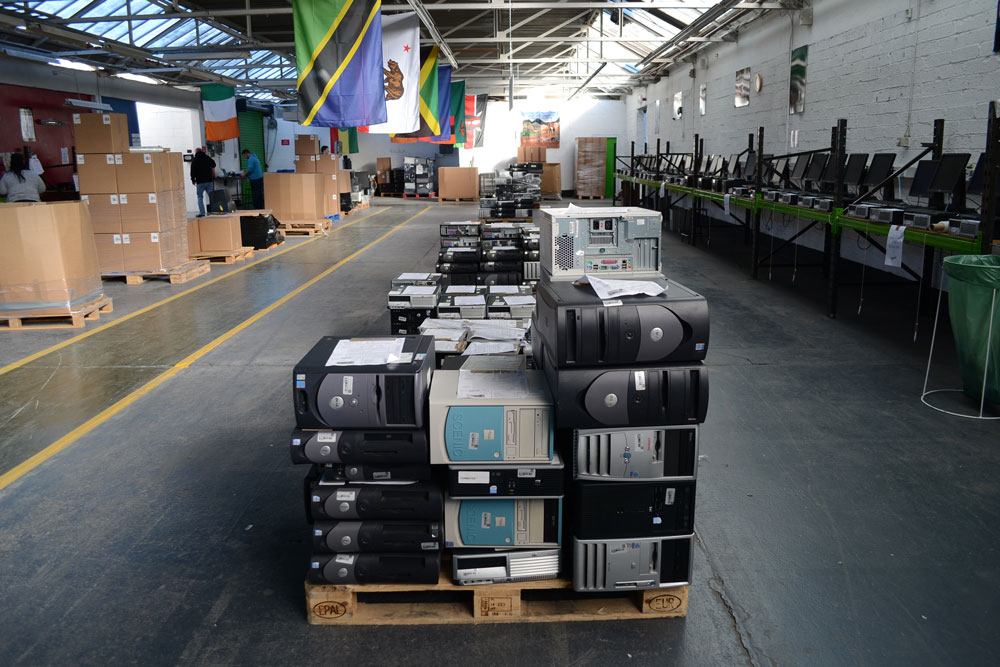
For years, people have created myths to clarify things that they don’t grasp. The difference is that now, rather than the Loch Ness Monster and Bigfoot, quite a few myths are technology related.
Take, for example, the myths about renovated computers. As you read this, the human brain has already been flooded with preconceived notions of how they work (or the way they don’t). Set your mind at ease, because reconditioned laptops and desktops can in fact be great machines and evenly good values. For proof, check out these seven renovated computer myths, and exactly how easily they may be busted.
1. Refurbished pcs are gradual and run terribly.
As the worldwide director for Microsoft’s refurbisher programs, Sean Nicholson has heard everything when it comes to restored computers. The first wild claim that involves mind when speaking about these machines is that they run inadequately – a opinion that’s off by an extended shot. “If it goes through a half-decent refurbisher, it’s actually heading to be as or even more reliable.
Wholesale Computers and Technology is the leading supplier of new, refurbished, and recertified computers in America. We sell computers to many states as well as many different countries. Our wholesale computer supply will out price any other wholesale computer distributors, this we guarantee! In house data recovery specialists are standing by to fix all of your data recovery needs!
Actually, one of Microsoft’s partners did a side-by-side test with new and renovated units, enabling users surf the web and perform other tasks with both sorts of computers, but they weren’t told whether they were by using a reconditioned model or a fresh-from-the-box system. The result: From a performance perspective, people couldn’t discern the difference between your two varieties of PCs.
Putting restored computers to the test in real life, Tom Drew, owner of Eugene, OR-based ATW Production Company, found similar results. “We run a little program that’ll reveal how old the hard drive is, just how many times it has been turned on, the amount of hours that it is run etc,” says Drew. “Both refurbished pcs we just bought was included with brand-new one-terabyte hard drives, and the memory space inside have been upgraded and replaced.”
2. Refurbished computers are more likely to respite than new systems.
Some people think that because refurbished computers were previously used and returned, they were once broken. Actually, these were probably working great when they were repaid, says Nicholson. The truth is that with new personal computers, manufacturers own an expected failing rate.
Alternatively, “when you go to the refurb world, if they’ve been through that soak test to be used in a corporate environment for 3 years or whatever, they’ve been through that first bit where in fact the most them fail,” says Nicholson. In other words, refurbished computers will be the cream of the crop, put back again to work because they’re jogging great. “What you’re remaining with are machines which were built properly to get started on and that just continue ticking,” says Nicholson.
3. Refurbished computer systems are just resold rubbish that haven’t been viewed properly.
It’s true that with a multitude of companies reconditioning pcs, there are no place expectations for how these machines are cleaned up and made ready. It is because every computer is different, so it’s impossible to make a code that pertains to every system. But large companies may become Microsoft Certified Refurbishers and use Microsoft to ensure their repurposed machines get the most from the Windows operating system. Also, says Nicholson, there’s a standard called R2 that makes computer systems ready for reuse. Refurbishers who use R2 the stand by position their work.
But a proven way reconditioned computers really work better than off-the-shelf models is the fact they often times have their BIOS upgraded as part of the refurbishment. A computer’s BIOS is the underlying software that drives the hardware – it’s the code that does everything from render pixels over a system’s display to supporting the processor talk to the hard drive. As time passes, as your personal computer has been out in the world, manufacturers will often uncover insects in the BIOS, but this code is difficult to upgrade. Refurbished pcs often feature a fresh, new BIOS installed. Consider, when was the previous time you upgraded one’s body BIOS over a computer you bought new? You’ve probably never done it before.
4. Refurbished computers aren’t powerful enough to perform a business.
There couldn’t be any other thing more opposite from the reality, says Nicholson. The truth is, these pcs have likely already run businesses in their prior lives. “They are ex-corporate machines,” says Nicholson. “They’ll generally have better processors and everything that sort of stuff when compared to a normal entry-level cheap consumer device.”
In fact, Drew has witnessed this first-hand. To be able to perform its online delivery, his company was supplied with a renovated computer by UPS – a move that inspired Drew to buy reconditioned machines for his own employees. “For any I know, they’re taking them out of the corporate and business areas and providing them with to schlubs like me to run WorldShip on,” says Drew. “When they plug it in and we run it in a shop environment for two years which baby never burps, you can’t help but say, ‘Hey, this thing is most likely well-crafted. Let’s look for some of the.’”
5. When you get a renovated computer, you’re just buying someone else’s problem.
It’s natural to believe a reconditioned system is one that was just discarded since it wasn’t working well, but that’s rarely the case. “You know very well what you’re buying?” asks Drew. “You’re buying a person else’s finances.”
Corresponding to Nicholson, nearly all renovated computers are systems which have really just come off the finish of an business rent. For instance, Microsoft leases pcs to run aspects of its business. And after 3 years, when those systems come off rent, Microsoft passes the computers to a refurbisher, which resells them.
Drew sums it up perfectly: “You’re basically obtaining a two- or three-year-old computer that’s been found in a commercial environment, probably babysat, and looked after by a corporate and business IT team.”
6. Refurbished personal computers have great warranties because they’re essentially rubbish.
When you buy a brand-new computer, there are usually multiple guarantee options, ranging from 3 months to 3 years. But reconditioned systems can have warranties that can go as long as seven years, and many people think that’s because refurbishers expect these systems to need to be restored again later. Not, says Nicholson. “No refurbisher or new equipment manufacturer would like machines returning – it actually costs them big money,” he says. “It’s economical suicide to place out machines whose quality you’re not positive about.”
Drew can verify these machines’ quality first-hand. “The pcs come in basically just like a new computer,” he says, adding that his company hasn’t had a need to make a warranty lay claim.
7. Refurbished pcs don’t last as long as new machines.
There’s a vintage adage: “You get what you pay for.” But corresponding to Nicholson, it doesn’t carry water in this situation. Because refurbished pcs not only cost a lower amount and perform excellently, in addition they last a long time.
For example, he says if you give someone a brand-new computer, plus they run that system for seven or eight years, that machine has likely never really had any updates, reinstallations or overall check-ups. It’s like buying an automobile, never setting it up serviced, and anticipating it to keep to purr like your day you bought it. But if you opted to buy a pre-owned vehicle instead, you will be comfortable it’s been viewed by expert mechanics, and everything is up to date. That’s what Microsoft Approved Refurbishers do, too – only it’s for computer systems, not cars.
Don’t be dismissive of refurbished personal computers right off the bat. Remember: The majority of what you think you know is actually the contrary of the reality.



